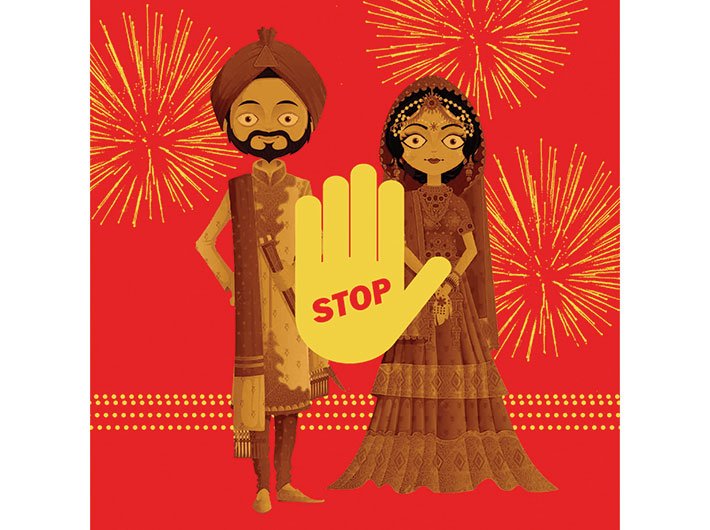Weddings have become more and more lavish, entailing wastage of resources like water and food
It’s easier said than done, as the Indian weddings are just getting bigger and fatter by the day. And mind you the brash celebration is not just restricted to the business honchos who invite international pop stars to perform at their wedding, and celebrities who host week-long-intercontinental galas. If you look around, your humble-looking neighbour living on the fourth floor recently hosted a very extravagant wedding for his child. When grooms arrive in helicopters at the wedding venues, Swarovski shines everywhere, and Sabyasachi becomes a household name you need no further proof. Blame it on the consumerist culture.
Coming from Delhi, this writer has never seen a ‘simple’ wedding in her life. The bride’s and groom’s families are usually referred as “party” like a business entity. There is always an unsaid competition to be better than the other “party” in terms of extravagance. From orchestrated dance performances to an unending guest list and from designer attires to multi-cuisine spreads, nothing can be given a miss. Even the eyes take a while to adjust to the bling.
Think
Weddings have become more and more lavish, entailing wastage of resources like water and food
. . .
The trend also makes a garish display – of widening inequalities
. . .
The supreme court has asked the Delhi government to see how to limit wastage
Moreover, the glamourisation of the supposedly intimate affair in the last decade with larger-than-life celebrations is also making the youth today lose their rationality where everyone wants to have a fairy-tale wedding.
So does that mean a wedding without garish display of wealth is a mere wishful thinking? Obviously, no. A practical approach is needed with a lot of courage to break the what-will-people-say syndrome.
If we look around there are a handful of instances to emulate. A couple had tied up with the Robin Hood army, which distributes surplus food to the needy, to cut down on criminal wastage of food at their wedding. In another case a couple cut down on their wedding expenses and donated '20,000 each to 10 farmers.
Recently, a heart-warming story of a groom from across the border is taking the internet by storm. The groom hosted his wedding reception, a simple function, on the terrace of his house and invited a handful of guests and paid only Pakistani Rs 20,000 for all the arrangements. Seems surreal, isn’t it? But it’s true. Being wise does no harm after all and saves some money too!
The government can also help in a way. Remember the demonetisation drive of 2016? Among other factors, it was also criticised for playing spoilsport during the wedding season. Due to shortage of cash in banks, a special withdrawal limit for marriage purposes (on producing the wedding card as proof) of Rs 2.5 lakh was allowed. There was much hue and cry, but it also helped in the much-needed cutting of the flab from the lavish weddings.
The Delhi government on its part is formulating a policy to limit the number of guests and curb food wastage at extravagant weddings in the capital, following a supreme court directive.
But then do we really need a policy or a law to make us realise the value of our own money? It is the mindset which needs to change.
Prudence... where art thou?
Reality Check
It’s a once-in-a-lifetime event and people earn and save money all their lives for it. In most cases societal pressure overpowers the better sense, hence the grand celebrations. A liberal would balk at the very idea of state control on something like a wedding! Also, what is wastage for one is a whole industry for another, providing jobs to hundreds per event.
(The article appears in January 15, 2019 edition)



